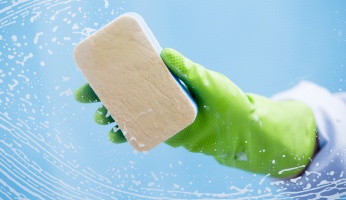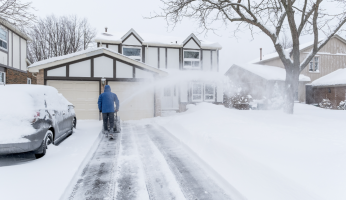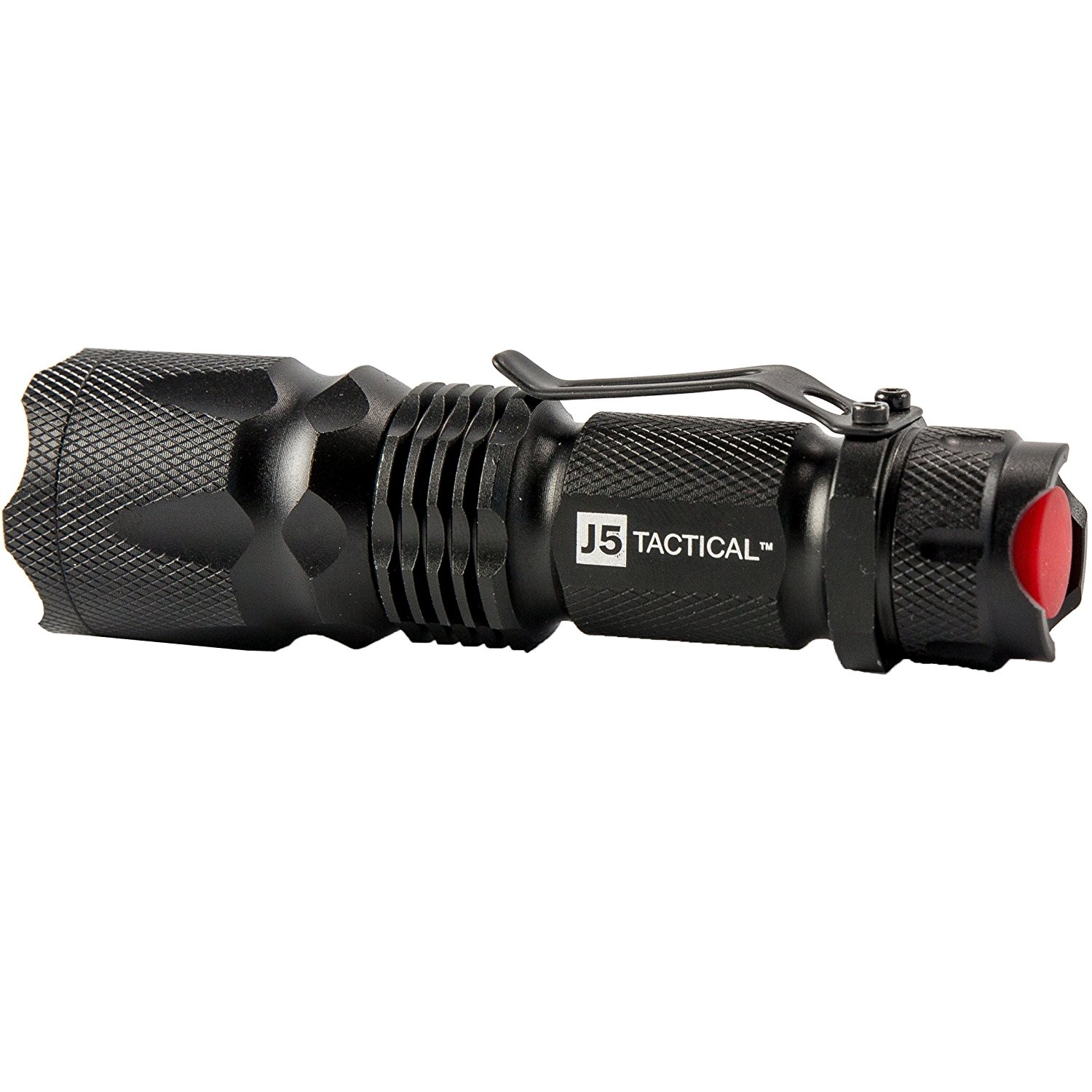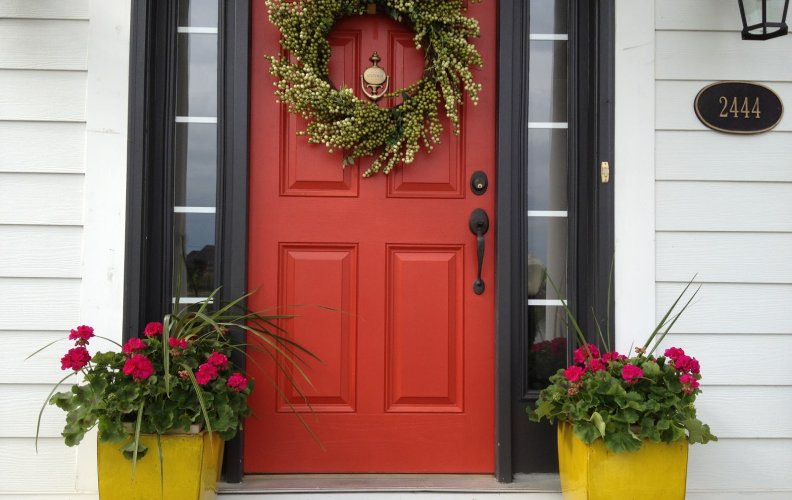- No Obligations
- Stop Paying Too Much For Your Contractor
- No Spam Calling
- Screened & ID Checked Contractors only!
Homemade Weed Killers Proven To Work!
0
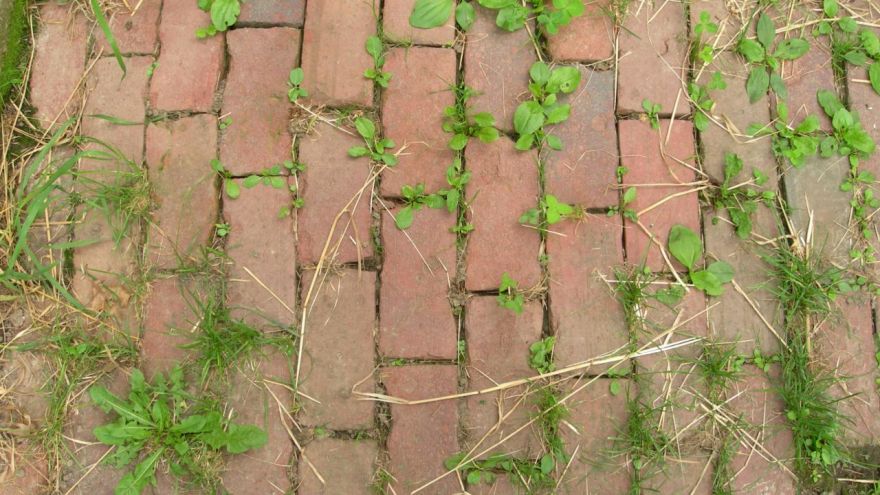 Homemade Weed Killers Proven To Work!
earlyexperts.net
Homemade Weed Killers Proven To Work!
earlyexperts.net
Everyone would love to have a garden filled with vibrant colourful plants or succulent ripe vegetables and fruit. Having a garden like this however means doing lots of work ridding the ground of intrusive weeds that choke your useful plants and rob them of nutrients and sunlight. The obvious answer, apart from pulling the weeds out by hand which is not always possible if they are growing between cracks in rocks or in a path is to use some kind of weed killer to poison them. There are plenty of proprietary weed killers for sale in garden centres and supermarkets but they all have one thing in common, they are poisonous not only to plants but also to humans and animals. Not only that but also they are relatively expensive. Have we another option?
Are there any household chemical are available?
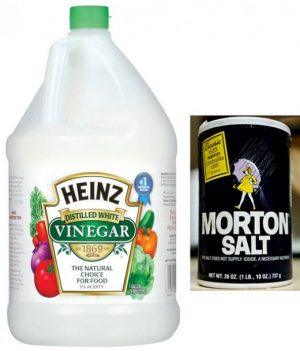
Believe it or not there are common household items available in all kitchens that can be used to create a useful home-made weed killer.
Hot water. Water makes a useful carrier for the other items in this list. The application of boiling water onto your unwanted weeds will cook them to death. The water must be poured directly onto the plant to have any effect and will probably need 2 or 3 applications before you see any change. Be careful to avoid splashes onto yourself or other beneficial plants as the water isn’t fussy as to what it cooks.
Salt. Any type of salt (sodium chloride) such as common table salt, seawater or rock salt used on icy roads has the effect of killing the plant and sterilising the soil. Be careful when applying, as nothing will grow in that spot for several years.
Vinegar. Any type of vinegar; malt, wine or cider vinegar is a strong acetic acid. It is effective against most annual weeds but perennials may regrow needing additional treatments. Vinegar works by dissolving the skin of the leaves allowing rapid moisture loss in the plant and subsequent desiccation. Spray the liquid directly onto the weeds early in the season before seeds have formed and when they have died simply remove them by pulling. Avoid contact with valuable plants as it will also damage those. Although normal household vinegar (about 5% acetic acid) will work, many gardeners use the more concentrated horticultural vinegar (about 20% acetic acid) for applying to more woody stemmed plants and those that are more stubborn. The disadvantage with vinegar is that it won’t stay in the soil and is soon washed away.
Bleach. Ordinary household bleach (sodium chlorite), used to kill germs around the house is also very good at killing plant life. It is especially useful for clearing paths or paved areas. Be careful when applying the liquid as you can splash other plants along the flower borders or parts of your lawn. The bleach remains in the soil preventing the weeds from returning. Hydrogen peroxide, another type of bleach used for sterilising baby feeding bottles or home brewing equipment is in many cases a better substance to use. It has a minor bleaching effect, but decomposes harmlessly into oxygen and water.
Detergent. Although not specifically poisonous to plants, if mixed with vinegar or a salt solution this acts as a surfactant and allows the salt and vinegar to adhere to the plant more efficiently.
Other methods
Mulch. A completely non-toxic way to remove unwanted weeds is to remove their access to sunlight. Use a layer of old newspapers, horticultural fleece, opaque plastic sheet or at least six inches of organic mulch. The layer will stop any sunlight from reaching the soil and will prevent the weeds from growing.
Physical damage. If you want to kill an unwanted tree, the most effective way is to use a knife to cut and remove a two inch wide strip of bark all the way around the trunk. This will stop nutrients from moving between the roots and the rest of the tree and stop photosynthetic sugars from moving between the leaves and roots. You are effectively starving the tree.
Prepare a weed killing spray
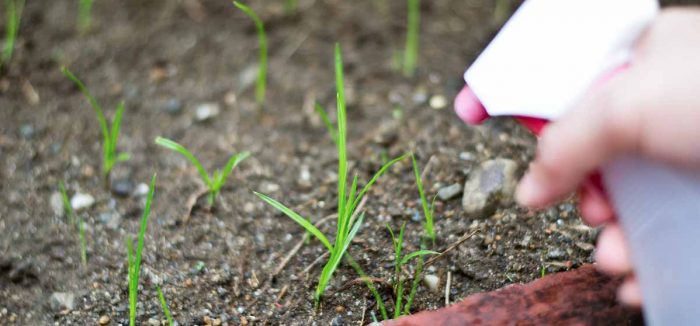
A simple preparation using salt, detergent and vinegar can be prepared as follows:
1. Pour one gallon of vinegar into a bucket.
2. Add one cup of table salt. Stir until all the salt is dissolved.
3. Add one tablespoon of dishwashing detergent. Do not use dishwasher liquid or liquid soap.
4. Pour the liquid into a plastic spray bottle.
5. Wait until you have a dry sunny day.
6. Drench the unwanted weeds with the liquid, coating all surfaces with the spray.
7. Don’t forget that once the weeds are gone, you will not be able to grow anything else in this place until the salt has washed away and the soil has recovered.
Another preparation using bleach is as follows:
1. Bring a saucepan of water to the boil.
2. Add once cup of salt to every two cups of water.
3. Stir until all the salt has dissolved.
4. Add dishwashing detergent in the ratio of 1 tablespoon to every 16 cups of water.
5. Pour the mixture into a bucket.
6. Add as much household bleach as you are comfortable with and stir with a wooden spoon.
7. Important – Wear suitable protective gloves and safety glasses when handling bleach. Do not splash the liquid onto your clothes or skin. Avoid breathing the fumes. The hot water can scald your skin.
8. Pour the liquid into a spray bottle.
9. Drench the weeds on a warm dry day with no wind.
If you prefer not to use bleach you can still pour the boiling brine solution over the weeds and they will be cooked. Take care when handling boiling liquids and do not make contact with bare skin.
Safety Concerns
When handling these substances it is important to ensure that they do not come into contact with the skin, especially the mucous membranes around the eyes, nose and mouth. Bleach will damage human skin as easily as plant skin and if splashed in the eyes can result in permanent blindness. Acidic vinegar and concentrated salt solutions can damage the skin and can also cause problems with the mucous membranes. Boiling water in contact with the skin will cause scalding and severe scarring.
Always wear protective clothing, suitable protective gloves, and eye protection. If bleach fumes are a problem then use a face mask as well and keep the area well ventilated.
If any of the chemicals or boiling water comes into contact with the skin, drench the area with plenty of cold water. If the chemicals are swallowed, drink plenty of cold water or milk. Do not induce vomiting.
Always seek medical advice as soon as possible and tell the medical professional what you have ingested.
To finish
There are ways to kill unwanted weeds in your garden other than proprietary weed killers. Many household items can be useful in getting rid of weeds but be careful that you do not poison the soil for many years to come. Simple preparations can be made and stored until needed. When handling any toxic substance always take care and wear suitable protective clothing.
Finally, have fun with your garden.

